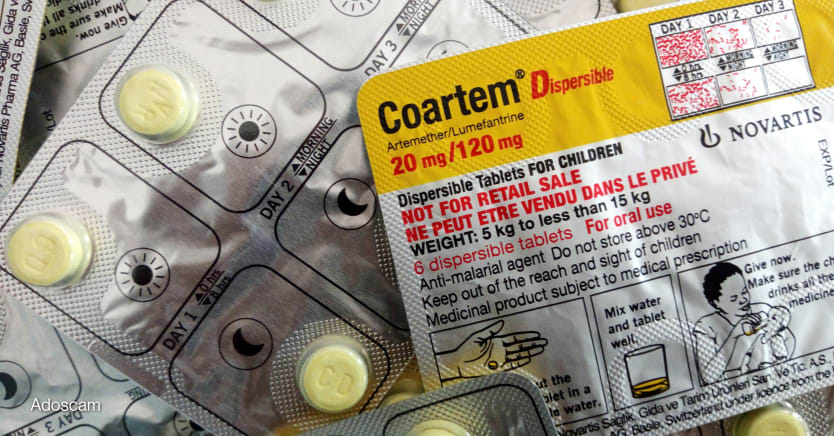
The Swiss regulatory authority approved a malaria treatment for newborns and young infants today, paving the way for rapid approval of the medicine in eight African countries. Coartem Baby, the treatment from Novartis, is the first approved for children weighing under 4.5 kilograms (10 lbs).
“This is an important addition to the management of malaria in high-burden countries,” Dr. Jane Achan, principal adviser at the Malaria Consortium, told Devex. Coartem, an artemisinin-based combination therapy, is the drug of choice for treating uncomplicated malaria. “But there’s been no formulation for this age group and weight band,” Achan said.
The eight African countries, which together accounted for nearly half of the 263 million estimated malaria cases in 2023, participated in the approval process with Swissmedic, the Swiss regulator. The countries are Burkina Faso, Côte d’Ivoire, Kenya, Malawi, Mozambique, Nigeria, Tanzania, and Uganda.
“It’s the quickest way to include as many countries as possible in a harmonized and stringent regulatory procedure,” Lutz Hegemann, Novartis’ president of global health and Swiss country affairs, told Devex.
Rollout of Coartem Baby could begin in Africa before the end of the year, he said, even as more countries get started on the process of regulatory approval. In Uganda, where Achan works, she said the registration process was already underway and that an end-of-the-year timeline for access to the treatment seemed realistic.
“This formulation is quite timely and very important,” she said.
Coartem Baby answers the need for a treatment specifically formulated for newborns and young infants. The only option has been for clinicians to reduce the dosage of existing formulations to attempt to accommodate the size of the child.
In the case of Coartem, which combines two antimalarials, “just changing the dose is not going to work because you might either underdose or overdose one of the two components,” Hegemann said. “That can lead to neurotoxicity. We had to change the ratio between the two active ingredients.”
Novartis has committed to providing Coartem Baby largely on a not-for-profit basis, though a price will not be set until it’s publicly launched.
Achan said she did not expect the price to be an issue because this is a reformulation of an existing treatment. She expected that it would be covered under the Global Fund to Fight AIDS, Tuberculosis and Malaria’s existing process for procuring malaria treatment.
The potential demand for Coartem Baby is not yet clear, in part because rates of malaria in newborns and young infants “is relatively poorly studied,” Hegemann said, although he said that Novartis will be able to meet any demand. The challenge, Achan said, is that many health workers are not trained to look for malaria in newborns, which can cause fever or a reduced appetite.
In rolling out the new treatment, Achan said it is critical that efforts are made to train health workers on how to utilize Coartem Baby. She said that might help spur greater testing and diagnoses of malaria in newborns and infants.
“We have heard from patients how critical that situation is when a baby has a life-threatening disease and there isn’t an approved treatment,” Hegemann said. “That prompted us to embark on this journey.”
Search for articles
Most Read
- 1
- 2
- 3
- 4
- 5






